- South Korea recently instituted a new convention for street addresses, which is causing confusion in Seoul and all across the country.
- The number of small and medium sized companies in Korea is impressive, especially in relation to the size of the country’s population. Korea is a hotbed for entrepreneurial activity – and we are hopeful that one day, business regulations will level the playing field, allowing small and entrepreneurial companies to compete against much larger incumbents (chaebols).
- In aggregate, Korea’s companies produce a remarkable amount of operating cash flow compared to other developing nations; however, Korean companies pay out a remarkably low amount of that cash flow via dividends, casting doubt on the quality of corporate governance within the country.
A new street address convention was recently implemented across the whole of South Korea. The preceding convention involved a complex system of administrative or ward divisions, which were then modified by specifying the neighborhood (or “dong”), and also sometimes modified further by including landmarks. As of January 2, 2014, a new western-style street address convention was made official; every Korean street now has a name and every building now has a number. No more wards, administrative divisions, “dongs,” or landmarks. This change caused massive confusion in the first days of January, and I can confirm that confusion still persists across many parts of Seoul. Navigation systems often do not properly recognize the new addresses, the root problem being that the most important part of the address, the “dong” (neighborhood), is missing. Most Koreans with whom I interacted on my recent trip to Seoul seem resigned to the new convention, though it will be some time before it is an ordinary part of daily life.
Just as Korea’s signposts are changing, Korean companies are facing many changes including lower top line growth and continued margin compression. Lower growth is an inevitable result of Korea’s aging population and lower birth rates, and this lower growth is reflected in the nation reaching “developed” status by just about every statistical agency apart from MSCI. (Index provider MSCI compiles a prominent series of global equity indices that serve as investment benchmarks, and thus its decision to classify a country as “developed” or “emerging” carries weight.) The margin compression that many Korean companies continue to experience has many root causes: slower revenue growth due to the aforementioned macro factors; continued domestic wage inflation; increased domestic competition; a heavy-handed mercantilist bent underlying commercial regulation; and continued strength in the local currency (the won), especially since 2010.
While Korean companies face numerous challenges, one need only look at the robust pace of business formation in order to be optimistic about Korea’s future. The sheer number of Korean companies in the healthcare, pharmaceutical, services, media and technology sectors is impressive. As shown in the table below, Korea, a nation of just 45 million people, has roughly as many public companies with market capitalizations above US$100 million as do India and Brazil combined. In contrast to Korea’s past, in which the local economy was dominated by giant, family run conglomerates, or chaebols, the sheer number of public companies today is evidence of a dynamic economy where small and medium sized businesses are able to gain traction, at least initially. Many of these intensely competitive companies have not only the potential to grow beyond Korea, but also the keen desire to do so.
| Population (MM) | Aggregate Market Capitalization (US$B) | # of Publicly Traded Companies | Aggregate Cash Flow From Operations (CFO), Last 12 Months (US$B) | Aggregate Dividends Paid, Last 12 Months (US$B) | Market Capitalization / Cash Flow from Operations | Dividends / Cash Flow from Operations | |
|---|---|---|---|---|---|---|---|
| China / Hong Kong | 1,368 | 6,800 | 3,533 | 505 | 84 | 13 | 17% |
| India | 1,327 | 1,200 | 621 | 73 | 21 | 16 | 29% |
| Brazil | 201 | 1,060 | 261 | 155 | 33 | 7 | 21% |
| Mexico | 126 | 583 | 118 | 54 | 10 | 11 | 19% |
| Japan | 125 | 4,440 | 1,073 | 277 | 35 | 16 | 13% |
| South Africa | 55 | 516 | 194 | 43 | 10 | 12 | 23% |
| South Korea | 45 | 1,180 | 835 | 147 | 10 | 8 | 7% |
- Sources: Seafarer, Bloomberg, IMF. Data as of 4/8/14.
- Note: Includes only companies with market capitalizations over US$100 million.
In the table above, when I look at the gross aggregate cash flow of publicly listed companies in Korea versus the equivalent statistic for other nations, two items jump out at me: 1) Korea produces a remarkable amount of operating cash flow compared to the other countries, especially when you take account of Korea’s small population; and 2) Korea pays out a dismally low amount of that cash flow in the form of dividends. There is no prevailing explanation for such dissatisfactory payouts. Korean companies will often suggest that they are seeking high-growth strategies, and consequently, they retain capital as a means to finance future expansion. Most foreign investors – Seafarer included – simply view the low payouts as evidence of poor corporate governance. Yet as Korea’s economy matures – and consequently slows – perhaps the prevailing attitudes toward capital retention and shareholder rights will change. There are some small, but non-trivial, signs that such changes are beginning to take hold. And it is my guess that the country’s smaller, more entrepreneurial firms will play a large role in advancing the country’s standards of governance, ultimately toward “developed nation” status.
In addition to the new street addresses, other key changes are afoot in Korea. Smoking is endemic within Seoul, yet it has been prohibited within all restaurants larger than 100 square meters. The archaic and financially dangerous “jeonse” apartment leasing system is being phased out in favor of a modern mortgage market. One could even argue that the intensely patriarchal society might be becoming slightly less so as Korea’s first female president takes on unfair business practices. Korea is at a crossroads on multiple fronts; we like what we see in terms of direction – and now the dividends please.
Kate JaquetSeoul
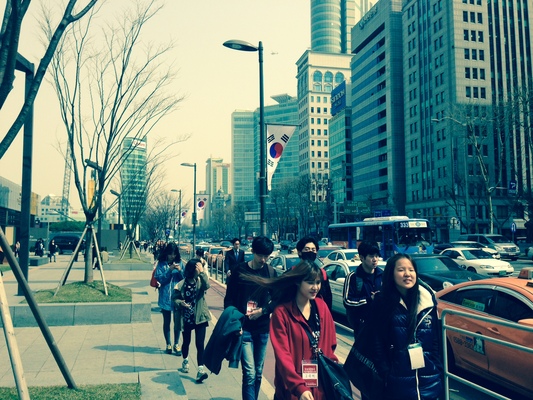




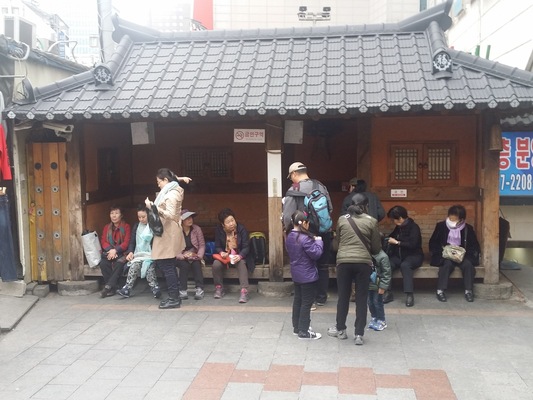
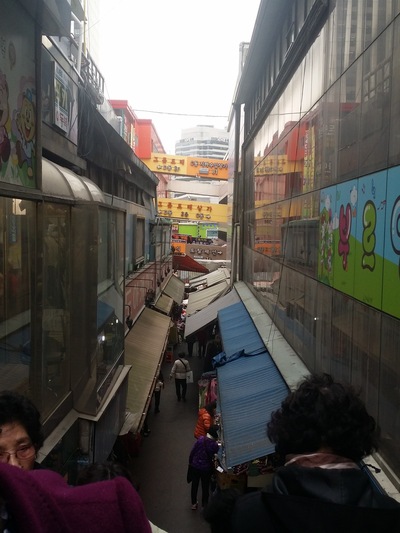

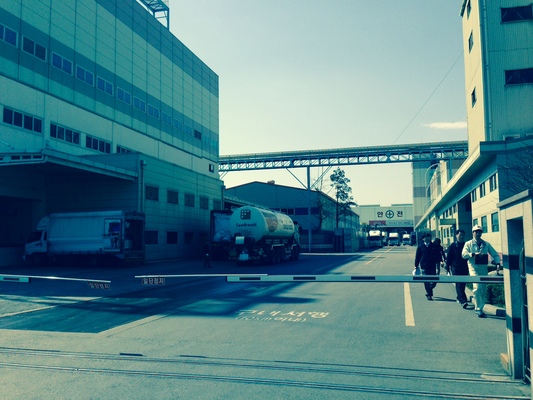
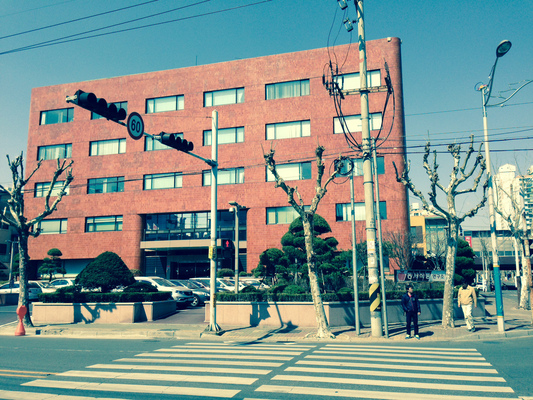
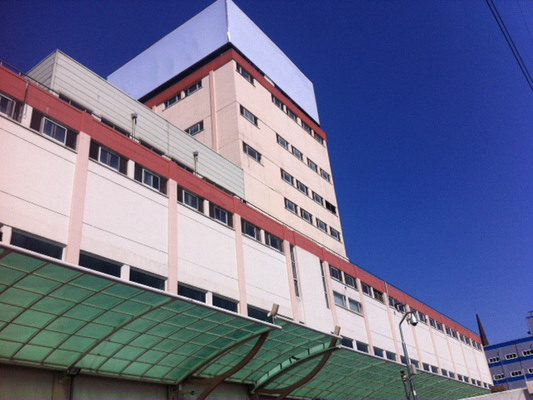
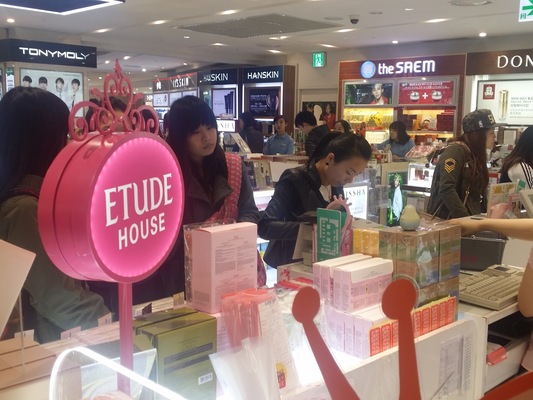
- The views and information discussed in this commentary are as of the date of publication, are subject to change, and may not reflect the writer's current views. The views expressed represent an assessment of market conditions at a specific point in time, are opinions only and should not be relied upon as investment advice regarding a particular investment or markets in general. Such information does not constitute a recommendation to buy or sell specific securities or investment vehicles. It should not be assumed that any investment will be profitable or will equal the performance of the portfolios or any securities or any sectors mentioned herein. The subject matter contained herein has been derived from several sources believed to be reliable and accurate at the time of compilation. Seafarer does not accept any liability for losses either direct or consequential caused by the use of this information.
- Kate Jaquet is a Registered Representative of ALPS Distributors, Inc.
![[Chrome]](/_layout/images/ua/chrome.png)
![[Firefox]](/_layout/images/ua/firefox.png)
![[Opera]](/_layout/images/ua/opera.png)
![[Microsoft Edge]](/_layout/images/ua/edge.png)